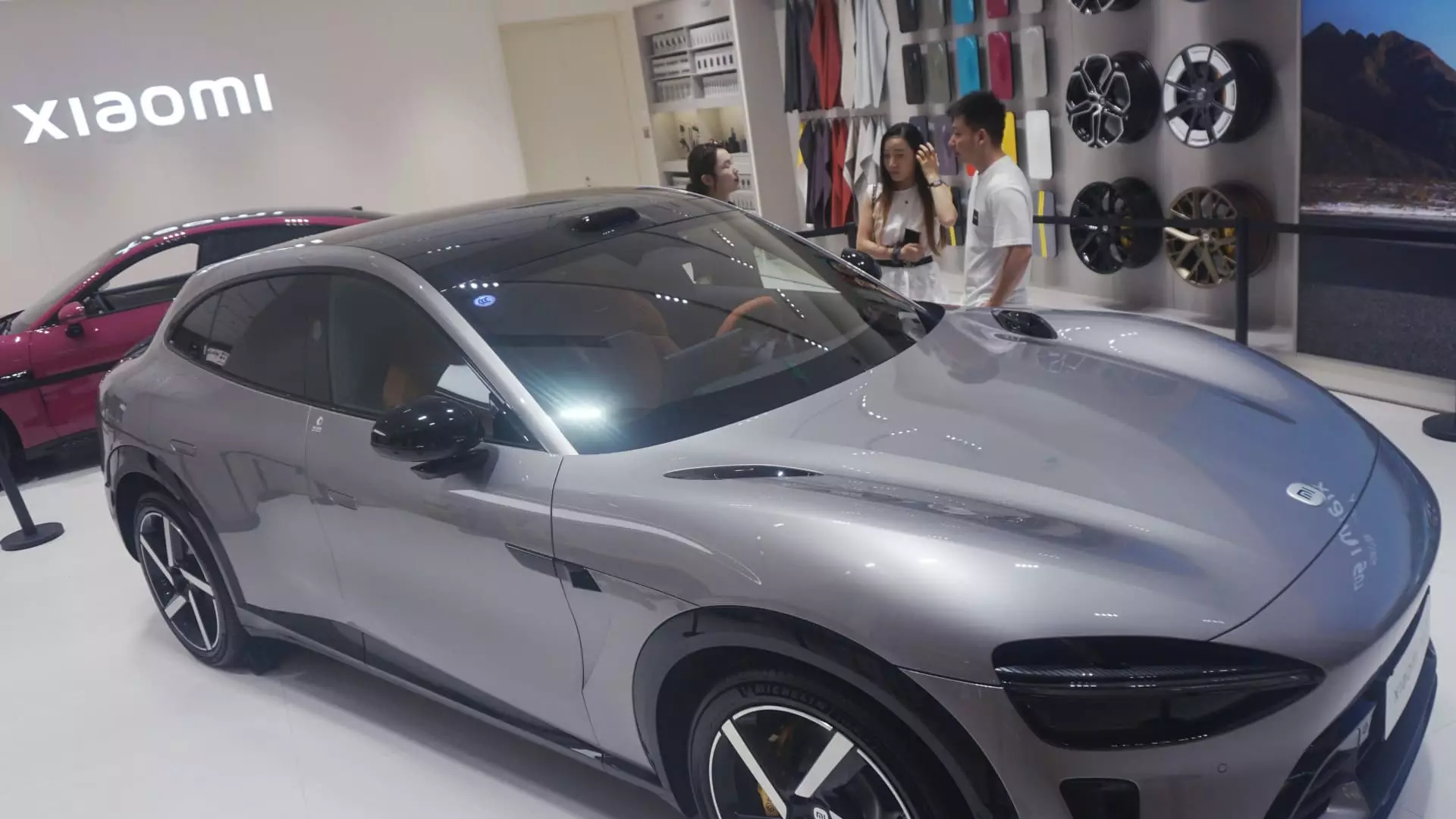Xiaomi’s recent surge in the stock market following the launch of its electric SUV, the YU7, signals a striking assertion of its ambitions within the fiercely competitive electric vehicle (EV) industry. Traditionally known for smartphones and consumer electronics, Xiaomi’s emergence as an automaker is a bold pivot that demonstrates not just diversification but a serious challenge to established EV leaders like Tesla. Prices undercut Tesla’s Model Y by roughly $1,400, and initial market demand was overwhelming—over 200,000 orders placed within three minutes. This rapid consumer response is a testament to Xiaomi’s growing credibility and the appetite for competitively priced, feature-rich electric vehicles in China’s booming EV market.
Strategic Pricing and Competitive Edge
Xiaomi’s strategy revolves heavily around affordability paired with enticing performance. With the YU7 starting at 253,500 yuan, it deliberately positions itself as a value-packed alternative to Tesla’s Model Y, listed at 263,500 yuan in China. This competitive pricing approach is part of a broader price war in the EV space, pushing manufacturers to innovate not just technically but economically. What distinguishes Xiaomi isn’t just a cost advantage; it’s the promise of superior specifications like an impressive driving range of 760 kilometers (472 miles), surpassing Tesla’s advertised 719 kilometers for the extended-range Model Y. In a market where range anxiety remains a significant consumer concern, such claims could shift perceptions and buying decisions.
However, Xiaomi does acknowledge a shortfall in driver-assist technology sophistication compared to Tesla, revealing a nuanced picture—while Xiaomi competes strongly on range and price, it still plays catch-up in autonomous driving capabilities. The inclusion of Nvidia’s Thor chip for their most advanced driver-assist system signals Xiaomi’s commitment to advancing these systems, albeit incrementally.
The Integration of AI: Beyond Just a Car
Unlike many automotive companies, Xiaomi integrates its expertise in artificial intelligence and consumer tech to enhance the user experience beyond traditional metrics. The YU7 offers AI-powered features such as gesture controls to change music and an app capable of describing the car’s parking location, seamlessly blending convenience with innovation. This approach caters to tech-savvy consumers who expect smart, connected experiences. Moreover, Xiaomi supports compatibility with Apple CarPlay and Apple Music, aligning itself with popular ecosystems to broaden appeal.
Xiaomi’s mastery of AI extends beyond vehicles—during the launch event, it unveiled AI-connected smart glasses that challenge existing tech wearables. These glasses feature adjustable tinting, contactless payments via QR codes, and smart recognition abilities, underscoring Xiaomi’s ambition to intertwine AI into everyday lifestyle products. While initially limited to the Chinese market, these innovations suggest Xiaomi views AI integration as a pillar for future growth, both in and outside the auto sector.
Implications for the EV Industry and Xiaomi’s Future
Xiaomi’s rapid ascension in the electric vehicle sector illustrates how tech companies with robust software and hardware expertise can disrupt traditional automotive hierarchies. Unlike legacy automakers, Xiaomi leverages strengths in consumer electronics to introduce a fresh user-centric approach, combining affordability, extended range, and smart features that resonate with modern buyers. The impressive pre-sale figures and stock market response highlight a growing trust in the brand’s automotive ambitions.
However, Xiaomi’s EV journey is just beginning, and the road ahead is challenging. Competing with Tesla’s ecosystem, particularly in driver assistance and autonomous capabilities, requires significant investment and innovation. Yet, Xiaomi’s advantage lies in agility, integrated R&D, and leveraging its established brand loyalty from phones and appliances into mobility solutions. If Xiaomi can sustain momentum and improve on current gaps, especially in safety and autonomous tech, it could redefine expectations for EVs in China and potentially beyond.
In essence, Xiaomi’s EV division is emblematic of how technology giants are reshaping industries by blending traditional product features with digital intelligence at competitive price points. This trajectory not only expands market choices for consumers but also pressures incumbents to evolve rapidly. Xiaomi’s bold entry might well trigger a new wave of innovation and rivalry, accelerating the transformation toward smart, accessible electric mobility.

